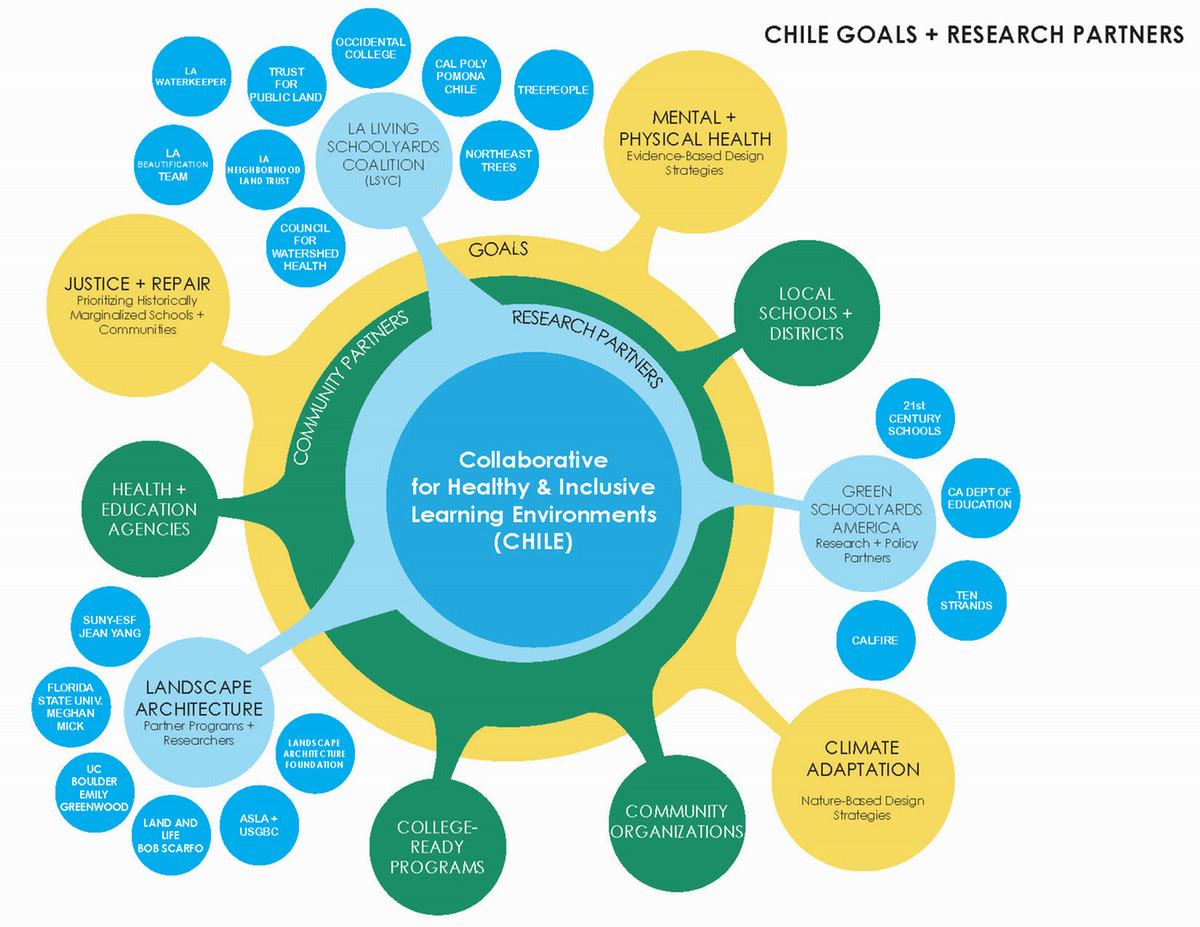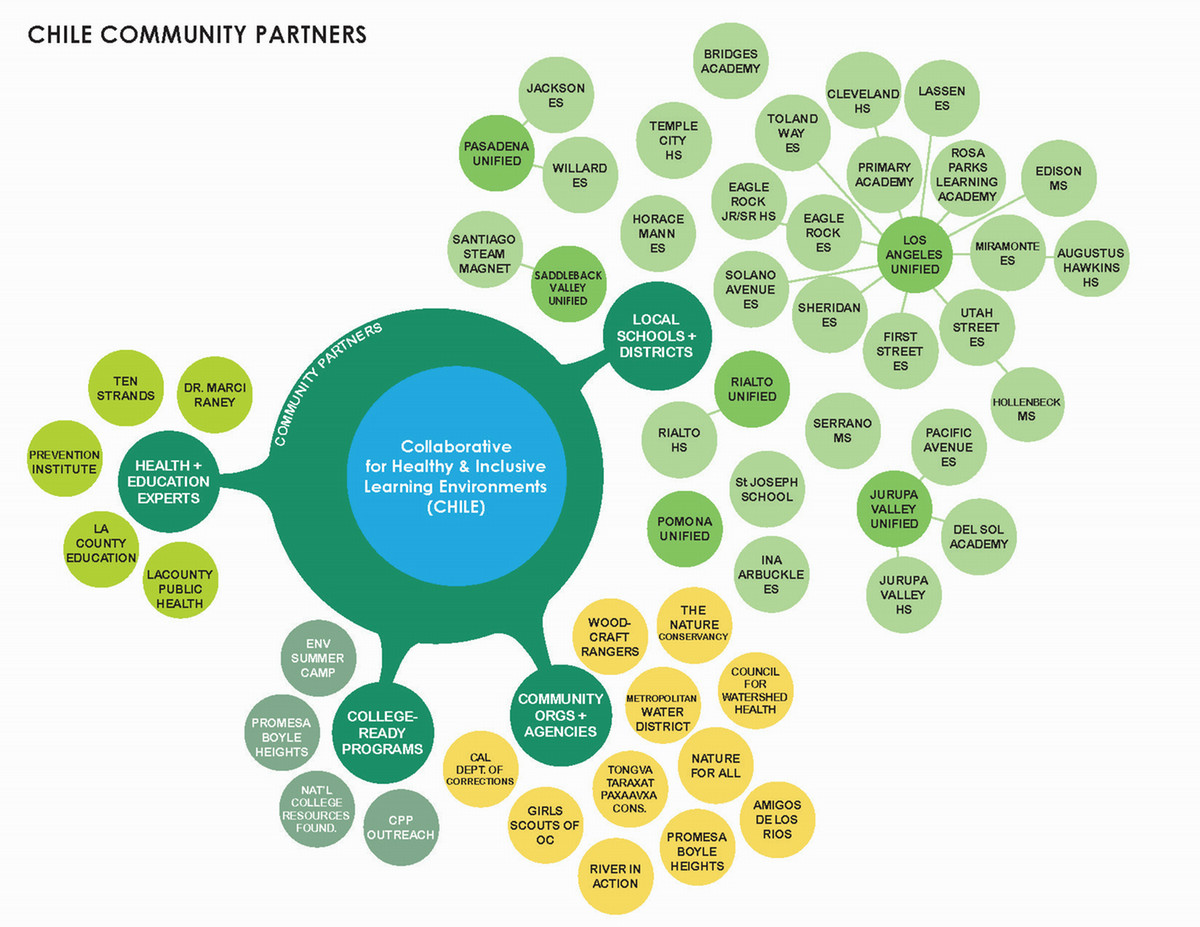About
Background
In 2009, Claire Latané and a design studio of Cal Poly Pomona landscape architecture students worked with Eagle Rock Elementary students to reimagine their asphalt-covered schoolyard into a nature-filled learning and play space. Their work inspired a $349,000 California Natural Resources grant to transform campus. The final design came out of an inclusive, multi-disciplinary design process that contributed research on the physical and social benefits of living schoolyards.
In 2019, Claire re-established this model at Cal Poly Pomona with an ongoing community-led design studio to support schools, districts, and community organizations. Since that first school design studio, CPP LA students have worked with dozens of K-12 school communities and community organizations, and 1 prison; introduced hundreds of landscape architecture students to community-led design practices; and inspired over $2.5 million of grant funding.
In June 2020, Cal Poly Pomona faculty and students organized the Emergency Schoolyard Design Volunteers as part of the National COVID-19 Outdoor Learning Initiative. By June 2021, when the program ended, we had received 250 requests from K-12 schools in 43 states and 3 countries, and over 300 design volunteers from 38 states and 5 countries. In addition to helping 125 schools with site assessment and planning, the Design Volunteers demonstrated the tremendous need for design help in schools around the country and the world. We share our continuing efforts here to help educators and communities across the country continue this work.
Mission
The Collaborative for Healthy and Inclusive Learning Environments was formed to build off the momentum of the Cal Poly Pomona landscape architecture (CPPLA) school design studio and the Emergency Schoolyard Design Volunteers. CHILE brings together thought leaders and practitioners in community-led design, education, public health, environmental justice, and climate-resilience. This multi-disciplinary coalition of experts provides resources in community-led, nature-based, and evidence-based design to support fellow educators in creating healthier, more equitable and just, accessible campus spaces. CHILE is housed in Cal Poly Pomona’s Lyle Center for Regenerative Studies and operates through the Department of Landscape Architecture.
Goals
CHILE provides resources and community-led design support for faculty, students, and community leaders who want to make change in their neighborhoods and campuses. We work with thought leaders in community-led design, education, public health, social justice, organizing, and climate justice to facilitate workshops, provide curricula, and share case studies of schools and communities designed to be healthy and inclusive.
- To co-create healthy and inclusive learning environments for K-12 schools, college and university campuses, and communities.
- To support community organizations working in historically marginalized communities with community-led, nature-based design solutions for health, equity, and climate justice.
- To expand representation of minoritized groups in design and adjacent disciplines by introducing them to community-led, nature-based, and evidence-based design strategies

